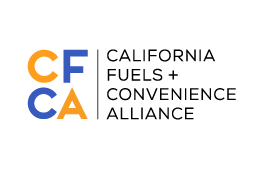FOR IMMEDIATE RELEASE: March 27, 2024
Contact: Alessandra Magnasco, CFCA, Governmental Affairs & Regulatory Director
Telephone: (916) 646-5999
Email: alessandra@cfca.energy
CFCA Files Lawsuit Against the California Energy Commission over SBX1-2 Emergency Rulemaking
Sacramento, CA – The California Fuels & Convenience Alliance (CFCA) has filed a lawsuit against the California Energy Commission (CEC). The lawsuit challenges the CEC’s rushed rulemaking process for the Emergency Regulatory Action for Revised SBX1-2 Spot Market Reporting Requirements that was passed within five days, with three of those days being a three-day holiday weekend.
Senate Bill X1-2 (SB X1-2), known as the California Gas Price Gouging and Transparency Law, was enacted last year to address gasoline price spikes and what Californians pay at the pump. CFCA’s lawsuit contends, however, that the Emergency Rulemaking is only going to make things worse. While the CEC frames the emergency rule as simply establishing routine recordkeeping requirements necessary to implement SB X1-2, this emergency rule goes much further by imposing unreasonably burdensome requirements and drastically increasing regulatory control over the transportation fuels market. CFCA supports transparency, but the emergency rulemaking is likely to push participants out of the California transportation fuel market entirely. That will reduce supply and make consumers even more dependent on a dwindling number of in-state refineries. That, in turn, will increase prices, harming consumers and small businesses, which is the opposite of what SBX1-2 is supposed to achieve.
Along with many other entities, CFCA had submitted comments during the rushed rulemaking process, raising CFCA’s concerns and asking CEC to take a collaborative approach that would better achieve the statute’s goals without unduly burdening market participants. CEC brushed those concerns and requests aside and instead adopted an entirely anti-democratic process with this rulemaking by claiming emergency action for a rulemaking that is not an emergency by any definition of the word. That kind of process makes for bad policy decisions and outcomes.
CFCA’s lawsuit also contends that CEC failed to evaluate the environmental impacts of this rulemaking under the California Environmental Quality Act (CEQA). By circumventing the CEQA analysis process, the state is making hugely consequential decisions that will without a doubt negatively impact the California fuels landscape and lead to higher emissions.
At a time when the state is aiming to better the energy future, neglecting the proper CEQA process is a step in the wrong direction. Especially when these requirements will impact the availability of gasoline in the state, which will in turn inevitably spike the price of gasoline, the CEC and the state must realize the adverse effects of such hasty actions and decisions that will be most heavily felt by consumers in the state.
Overall, this rulemaking has been rammed through the process without regard for its far-reaching impacts that will further exacerbate California’s fuel supply challenges by deterring independent fuel traders from entering the market, which will shrink an already far too tight supply in the state and drive prices even higher.
The CEC is creating an energy crisis that will disproportionately hurt our most vulnerable residents. CFCA will not sit idly by as California residents’ standard of living and our state’s economy are flippantly put in jeopardy for the sake of a political agenda.
###
About CFCA
CFCA is the industry's statewide trade association representing the needs of small and minority wholesale and retail marketers of gasoline, diesel, lubricating oils, motor fuels products, and alternative fuels, including but not limited to, hydrogen, compressed natural gas, ethanol, renewable and biodiesel, and electric charging stations; transporters of those products; and retail convenience store operators. CFCA’s members serve California’s families, agriculture, police and fire, cities, construction, and all consumer goods moved by the delivery and transportation industries.
